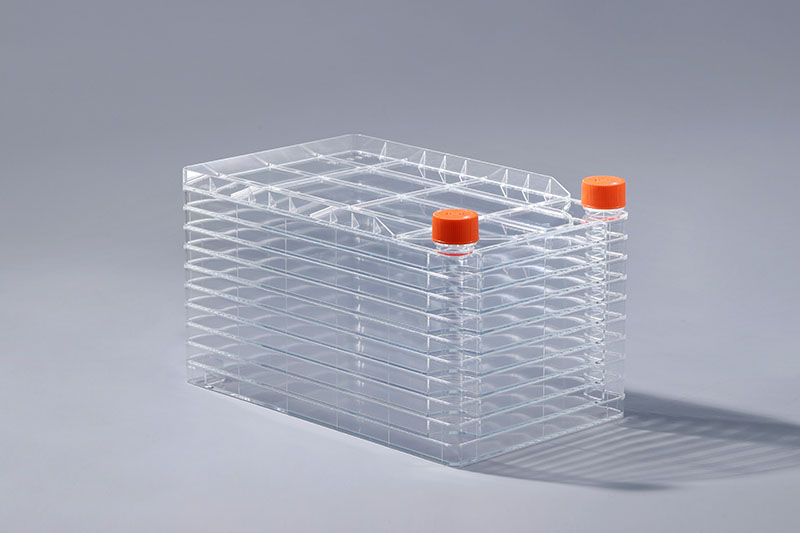Measles vaccine is a combined live attenuated vaccine that stimulates immunity against measles virus, mumps virus and rubella virus after vaccination. It is used to prevent measles, mumps and rubella. In the large-scale production of this vaccine, the cell factory is an indispensable cell culture consumable.
The measles vaccine is to inoculate chicken embryo cells with attenuated strains of measles virus and attenuated mumps virus respectively, and inoculate human diploid cells with attenuated strains of rubella virus. Add suitable stabilizer and freeze-dried. It is a cheese-colored loose body, which is orange-red or light pink clear liquid after reconstitution. The main components of lyoprotectant are human albumin, gelatin and sucrose.
In the past two years, the incidence of measles in my country has shown a downward trend. In 2019, the number of measles cases in my country was 2,974, the number of deaths was 0, and the incidence rate dropped to 0.21/100,000. In 2020, the cumulative number of measles cases in my country was 856, the death toll was 0, and the incidence rate dropped to 0.061/100,000. The vaccine has played a good preventive effect. The large-scale production of MMR vaccine mainly uses a 40-layer cell factory. The more layers, the more cells that can be inoculated. Because the number of layers is too high, it is difficult to operate. Generally, operations such as liquid feeding, cell mixing, and liquid discharging during culture are realized by means of an automated shaker, which can also reduce errors caused by human factors.
Cell factories are commonly used consumables for large-scale cell culture. By increasing the number of layers in the container, the culture area can be expanded, and it plays an important role in the preparation of biological products.
The FAI climbed 5.9 percent year-on-year in the first 11 months of 2018, quickening from the 5.7-percent growth in Jan-Oct, the National Bureau of Statistics (NBS) said Friday in an online statement.
The key indicator of investment, dubbed a major growth driver, hit the bottom in August and has since started to rebound steadily.
In the face of emerging economic challenges home and abroad, China has stepped up efforts to stabilize investment, in particular rolling out measures to motivate private investors and channel funds into infrastructure.
Friday's data showed private investment, accounting for more than 60 percent of the total FAI, expanded by a brisk 8.7 percent.
NBS spokesperson Mao Shengyong said funds into weak economic links registered rapid increases as investment in environmental protection and agriculture jumped 42 percent and 12.5 percent respectively, much faster than the average.
In breakdown, investment in high-tech and equipment manufacturing remained vigorous with 16.1-percent and 11.6-percent increases respectively in the first 11 months. Infrastructure investment gained 3.7 percent, staying flat. Investment in property development rose 9.7 percent, also unchanged.
 English
English



















































